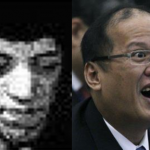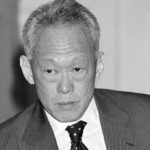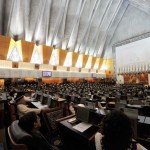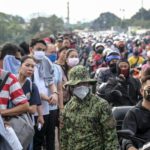Chapter IV – The Council of Government
Article 110. The President of the Council of Government is the Head of Government of the Republic of the Philippines and shall have the assistance of the Secretaries of the same Council.
Article 111. The President of the Council of Government shall be elected by the National Assembly by secret ballot and a majority vote of all its members from among themselves and appointed by the President of the Republic. By a system of elimination and subsequent secret voting, the one receiving the highest number of votes, with a majority, shall be elected President of the Council of Government and appointed within three days by the President of the Republic.
Article 112. The President of the Council of Government shall form the Council of Government by appointing the Vice President who shall head a secretariat, and the Secretaries who shall be the heads of the secretariats, at least three-fourths of who shall come from the National Assembly. They may be removed at the discretion of the President of the Council of Government.
The President of the Council of Government shall also appoint the career Permanent Secretary for each secretariat who shall be the chief administrator of the secretariat. The Permanent Secretary shall be appointed under the Career Civil Service rules and shall enjoy tenure of office unless removed for cause.
Husband and wife, parent and child or two siblings may never sit at the same time in the Council of Government.
Article 113. Before they enter on the execution of their office, the President, Vice President, and the other Secretaries of the Council of Government shall make the following solemn Affirmation in writing before the Council of State:
“I do solemnly affirm that I will faithfully and conscientiously fulfill my duties as (name of position) of the Republic of the Philippines, preserve and defend its Constitution, execute its laws, do justice to every person, and consecrate myself to the service of the Nation.”
Two identical originals of the Affirmation shall be executed, one of which shall be handed over to the National Assembly to be preserved in its archives, and the other be filed in the National Archives of the Philippines.
Article 114. The President of the Council of Government shall have an official residence. The salaries and emoluments of the President and the Secretaries of the Council of Government shall be determined by law and shall not be increased nor decreased during their tenure. The President of the Council of Government shall receive an annual salary as that of the President of the Republic.
Article 115. Members of the Council of Government shall be subject to the provisions of Articles 60 and 61 of this Constitution.
Article 116. The President of the Council of Government may resign from his position in a written notice to the President of the Republic. The Vice President of the Council of Government or any other member thereof may tender his or her resignation in a written notice to the President of the Council of Government without vacating his seat in the National Assembly.
Article 117. The Council of Government and its President shall be responsible to the National Assembly for the program of government and shall determine the guidelines of national policy. The President of the Council of Government shall, at the beginning of each regular session of the National Assembly and from time to time thereafter, present the program of government and recommend for the consideration of the National Assembly such measures he may deem necessary and proper.
Article 118. The President of the Council of Government shall have control of all secretariats, bureaus, and offices. He shall have supervision and administration over autonomous territories, local governments, and all of the Armed Forces of the Philippines. He shall ensure that the laws be faithfully executed.
Article 119. Two months immediately before the next regular elections and up to the end of his term, the President of the Council of Government shall not make appointments, except temporary appointments to executive positions when continued vacancies therein will prejudice public service or endanger public safety.
Article 120. The President of the Council of Government shall, with the consent of the Commission on Appointments, recommend to the President of the Republic the appointment of the Ministers of the Supreme Court of Justice and the magistrates of lower collegiate courts, the Ombudsman and his deputies, the Chairman and Members of the constitutional commissions, the Chairman and Members of the independent constitutional bodies, Ambassadors, Chiefs of Mission and Consuls-General, the Chief of Staff, the Vice Chief of Staff, and the commanders of the major services of the Armed Forces of the Philippines and the officers of the Philippine National Police of equivalent rank and grade, and all other officers of the Government whose appointments may be subject for confirmation as provided in this Constitution or by law.
The President of the Council of Government shall also recommend to the President of the Republic the appointment of the heads of the bureaus and offices, other public secretaries and consuls, the officers of the armed forces from the rank of colonel or naval captain, the officers of the Philippine National Police from the rank of senior superintendent, and all other officers of the Government whose appointments are not otherwise provided by law, and those whom he may be authorized by law to appoint. The National Assembly may, by law, vest the appointment of other officers lower in rank in the heads of secretariats, courts agencies, commissions, or boards.
The President of the Council of Government shall have the power to make appointments during the recess of the National Assembly, whether voluntary or compulsory, but such appointments shall be effective only until concurrence by the Commission on Appointments or until the next adjournment of National Assembly.
Article 121. The President of the Council of Government may contract or guarantee foreign loans on behalf of the Republic of the Philippines with the prior concurrence of the Monetary Board, and subject to such limitations as may be provided by law. The Monetary Board shall, within thirty days from the end of every quarter of the calendar year, submit to the National Assembly a complete report of its decisions on applications for loans to be contracted or guaranteed by the Government or government-owned or -controlled corporations which would have the effect of increasing the foreign debt and containing other matters provided by law.


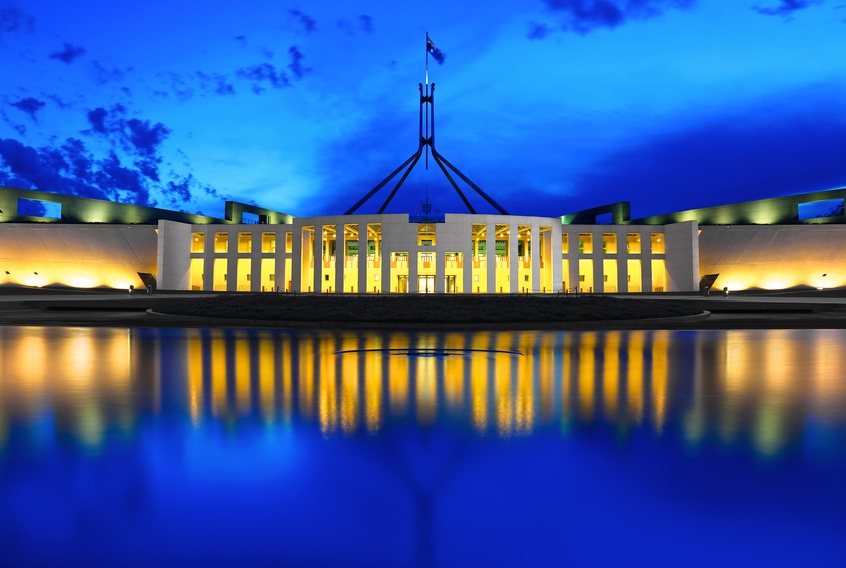
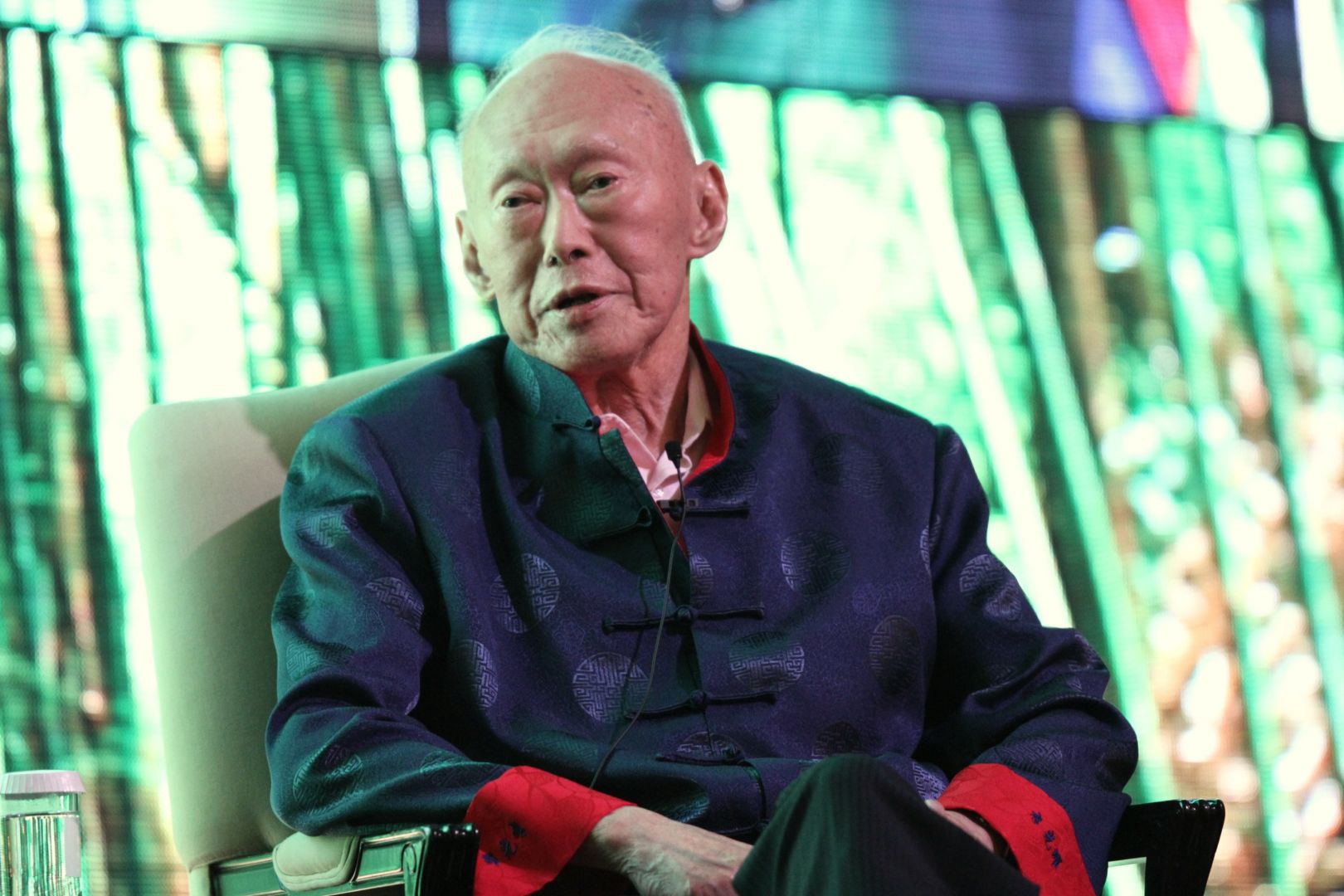
 I believe: This is a CoRRECT™ Video with a very positive message
I believe: This is a CoRRECT™ Video with a very positive message Walang Natira: Gloc-9's MTV Rap about the OFW Phenomenon
Walang Natira: Gloc-9's MTV Rap about the OFW Phenomenon

